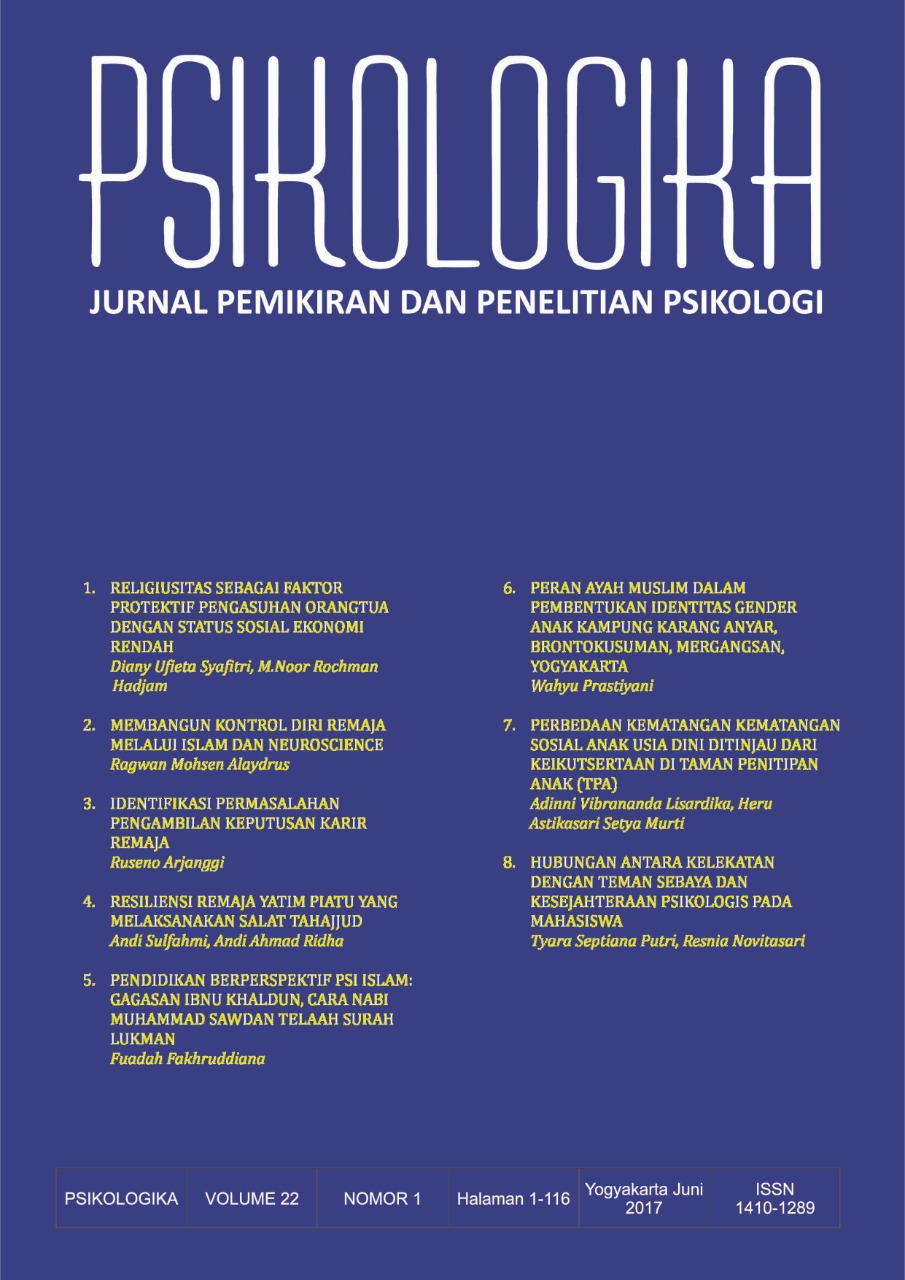Main Article Content
Abstract
This study aims to (1) know understanding of Muslim father against his role as a father, (2) identify Muslim father's role in the gender identity formation of children aged 6-8 years, and (3) determine the factors that influence Muslim father's role against gender identity formation of children aged 6-8 years. In this study, researchers used a qualitative descriptive research with an ethnographic approach. Collecting data using observation, interviews, and documentation. The subjects consisted of five fathers (intact family) aged 30-40 years who had children aged 6-8 years. The results of this study are (1) understanding of Muslim father against his role as a father are as economic provider, protector, educator, dan nurtured mother; (2) Muslim father's rolein the gender identity formation of children aged 6-8 years include friends sharing, role model, resource, and disciplinary; and (3) the factors that influence Muslim father' srole against gender identity formation of children aged 6-8 years are (a) educational
background of father, (b) background of ethnic/culture, (c) length of working time father, (d) awareness of the responsibilities of parenthood, (e) cooperation and mutual agreement, (f) knowledge of parenting fathers, (g) the pride of the father on the child' ssuccess, (h) lack of closeness between father and son, (i) the mental health of the father.
Keywords: children, gender identity formation, muslim father's role
background of father, (b) background of ethnic/culture, (c) length of working time father, (d) awareness of the responsibilities of parenthood, (e) cooperation and mutual agreement, (f) knowledge of parenting fathers, (g) the pride of the father on the child' ssuccess, (h) lack of closeness between father and son, (i) the mental health of the father.
Keywords: children, gender identity formation, muslim father's role
Article Details
License
Authors who publish with this journal agree to the following terms:
- Authors retain copyright and grant the journal right of first publication with the work simultaneously licensed under a Creative Commons Attribution-ShareAlike 4.0 International License that allows others to share the work with an acknowledgment of the work's authorship and initial publication in this journal.
- Authors are able to enter into separate, additional contractual arrangements for the non-exclusive distribution of the journal's published version of the work (e.g., post it to an institutional repository or publish it in a book), with an acknowledgment of its initial publication in this journal.
- Authors are permitted and encouraged to post their work online (e.g., in institutional repositories or on their website) prior to and during the submission process, as it can lead to productive exchanges, as well as earlier and greater citation of published work (See The Effect of Open Access).




